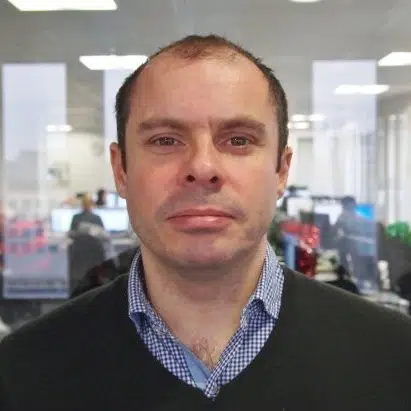Will Fixed Odds Wagering Cannibalize The Pari-Mutuel Industry?

New Jersey has earned its reputation as a trailblazer for legal online gambling, and it is certainly reaping the benefits of its far-sightedness in challenging PASPA. Now the state is once again setting the pace with another form of betting. This time it is fixed-odds horse wagering, but this new adventure doesn’t come without its complications.
This time, the pari-mutuel horse racing betting industry outside of New Jersey appears to be the most worried about the advent of a form of betting that is very popular elsewhere around the world.
The company with the rights to provide fixed odds horse racing in New Jersey is Australian-based BetMakers Technology. Through a deal with the state’s Thoroughbred Horseman Association and Monmouth Park owner Darby Development, BetMakers has a 10-year exclusive agreement to deliver and manage fixed-odds horse wagering.
Jake Henson, chief operating officer at BetMakers, says the horsemen’s organizations elsewhere should beware of hoping to hold on to the margin-rich pari-mutuel offerings at a time when sports betting is on the rise.
Fixed Odds Racing Is Changing the Customer Mix
“Racing’s customer mix will change dramatically over the next three to five years with the growth in legalized sports betting – it is important racing as an industry has the product range to tie itself to this growth.”
Among the first to take advantage of the ability to offer fixed odds horse wagering is PlayUp, which launched recently in the state. US CEO Dr. Laila Mintas says PlayUp sees fixed-odds horse wagering as a differentiator in what is clearly a very competitive market environment right now.
“NJ is probably the most mature market in the US, and we are looking for a differentiator,” she says and points to the examples of Australia and the UK for reasons why PlayUp thinks horse wagering can be a winner. “Both markets have a very mature sports betting market, existing side by side with a huge fixed-odds horseracing market,” she says.
“We are aiming to mid- to high-end customers, and we think that fixed-odds horse wagering is exactly the product these players will attach on to,” she suggests.
“For the horse wagering product, we do the risk management and trading in-house,” Dr. Mintas adds. “We allow our players to be high amounts. Most of the other brands are restricting their users from betting higher amounts. We don’t. Players will be able to bet as much as they wish with us as long as it’s in line with the regulations.”
Will New Jersey Be the Model Once Again?
How other states react to the advent of fixed-odds horse wagering in New Jersey will be instructive.
“The adoption of fixed-odds (horseracing) betting in NJ will serve as a litmus test, in our view, to see how the market reacts as more consumers become familiar with fixed odds betting,” said the analysts at Macquarie in a recent note on the prospects for the horse-wagering industry.”
As identified by Macquarie, the problem is that the pari-mutuel organizations are unlikely to give up the certainty of profit in exchange for “an uncertain style of betting.”
But Dr. Mintas counters that its fixed-odds cousin can actually help pari-mutuel by bringing in a younger betting demographic.
“We need to revitalize the industry,” she says.
Comparative Fixed Odds Horse Racing Markets Worldwide
Henson agrees, saying that BetMakers expects fixed-odds horse wagering to capture up to 15% of the total New Jersey sports-betting market, meaning that handle would triple from its current levels.
“That 15% figure is less than other regulated comparative markets like the UK, Ireland and certainly much less than Australia and New Zealand,” he adds.
In a press release welcoming the legalization of fixed odds wagering in New Jersey, Dennis Drazin, chairman at Monmouth Park and global board member of PlayUp, said the model for New Jersey, with BetMakers being effectively the gatekeeper through its managed trading services, gave the horseracing industry control of its income.
“We believe this model will deliver the best outcome for the racing industry across the US and for our racing partners globally,” Drazin added.
Mintas says that fixed-odds horse wagering is the last piece of the puzzle for the US sports-betting story.
“We think that as per what has been seen in Australia and the UK, horseracing should be part and parcel of any competitive offering, and certainly the example from Australia is that by adding fixed odds, it renews some enthusiasm for pari-mutuel,” she suggests.
This is evidenced within the Macquarie report, which shows that in the ten years to 2018, the CAGR for racing handle has been 9.5% while pari-mutuel betting in 40 US states has been flat over the same period.
Henson points out that with customers in over 30 countries, BetMakers has a significant sample size that demonstrates that greater returns can be driven for all participants.
“We see fixed odds and pari-mutuel wagering on horse racing being really complementary to each other,” he adds.
As the Macquarie analysts conclude: “While it might be early days, we believe New Jersey will be a market to watch as an indication of where the industry could be heading.
Scott Longley has been a journalist since the early noughties covering personal finance, sport and the gambling industry. He has worked for a number of publications including Investor’s Week, Bloomberg Money, Football First, EGR and GamblingCompliance.com. He now writes for online and print titles across a wide range of sectors.






